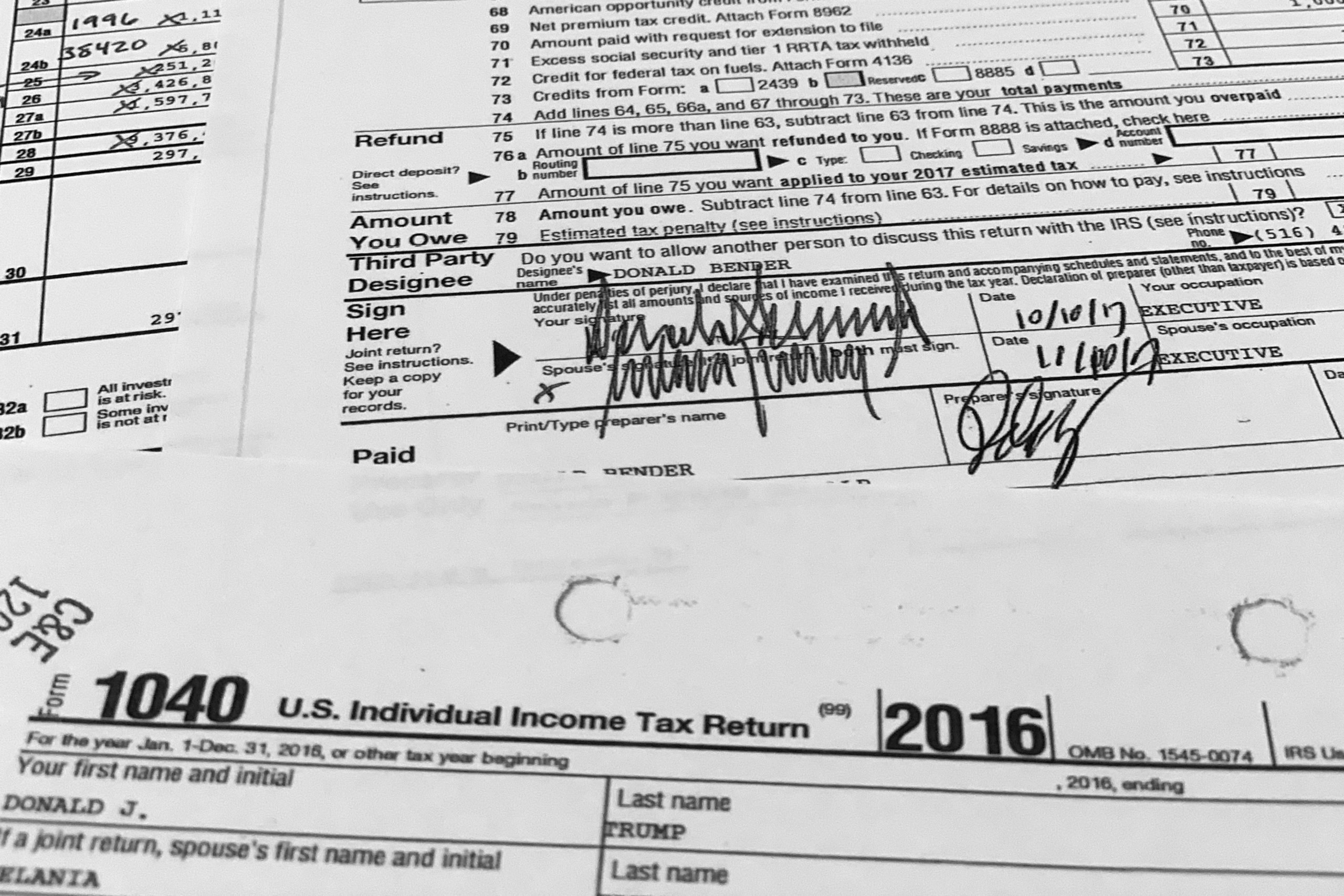Trump’s tax returns released after long fight with Congress

Democrats in Congress released thousands of pages of former President Donald Trump’s tax returns on Friday, providing the most detailed picture to date of his finances over a six-year period, including his time in the White House, when he fought to keep the information private in a break with decades of precedent.
The documents include individual returns from Trump and his wife, Melania, along with Trump’s business entities. They show how Trump used the tax code to lower his tax obligations and they reveal details about foreign accounts and the performance of some of his highest-profile business ventures.
The disclosure marks the culmination of a yearslong legal fight that has played out everywhere from the presidential campaign to Congress and the Supreme Court as Trump persistently rejected efforts to share details about his financial history — counter to the practice of transparency followed by all his predecessors in the post-Watergate era. The records release comes just days before Republicans retake control of the House and weeks after Trump announced another bid for the presidency.

Brooklyn Boro
View MoreNew York City’s most populous borough, Brooklyn, is home to nearly 2.6 million residents. If Brooklyn were an independent city it would be the fourth largest city in the United States. While Brooklyn has become the epitome of ‘cool and hip’ in recent years, for those that were born here, raised families here and improved communities over the years, Brooklyn has never been ‘uncool’.